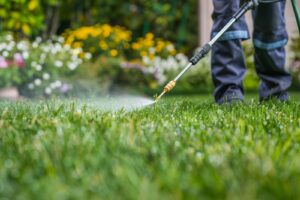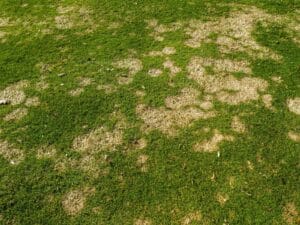An allergy can appear in response to anything you are exposed to in daily life, including plant pollen, pet dander, and common bugs. Bug bites can cause both minor and serious allergic reactions, but many bites are preventable if you pay close attention to your surroundings and take steps to eliminate or avoid insects that may be in your home or on your property.
Common Allergens
Bees, wasps, and other stinging insects are well-known allergens, but insects you may not suspect, such as fleas and flies, can also trigger an allergic response. The most common types of insects that cause allergies include:
-
- – Kissing bugs
- – Fire ants
- – Bees, wasps, hornets, and their relatives
- – Bed bugs
- – Mosquitoes
- – Biting flies
- – Dust mites
- – Cockroaches
While most insects that cause allergies sting or bite, cockroaches and dust mites cause an allergic response when you breathe air that is contaminated with waste particles or decomposing parts of the insect. This type of allergy causes symptoms like coughing and red, watery eyes, but can also trigger asthma or cause symptoms that are like asthma.
Recognizing Allergy Symptoms
Usually, insect bites cause redness, itching, or irritation at the site. These symptoms are a minor allergic reaction that usually disappear in short time. Some people have serious allergic reactions to bug bites. These serious reactions can happen even if you have been bitten or stung by the insect before.
Serious symptoms include hives or welt-like swelling that occurs over part or all of the body, nausea, difficulty breathing, and wheezing. This allergic response is called anaphylaxis, a life-threatening condition triggered by the immune system’s release of antibodies. The symptoms usually begin within 30 minutes of the bite or sting and require immediate medical treatment.
Preventing Bites at Home
If you have serious allergies, you can prevent insect bites at home by keeping the windows closed and sealing the home properly. For instance, installing weather stripping around doors and caulking around plumbing pipes can reduce indoor insects. Wasps, ants, bees, and cockroaches are often found indoors.
Contact an exterminator to get rid of indoor insects, and have the home treated regularly until you are sure the insects are eliminated to prevent bites. To eliminate airborne allergens caused by dust mites or cockroaches, dust the home with a microfiber cloth on a regular basis and use a vacuum with a HEPA filter to clean carpets.
Property Maintenance to Eliminate Insects
Exterminators are also the best way to eliminate outdoor pests. When combined with regular lawn maintenance, spraying the lawn to remove insects is an effective way to control the number of insects on the property. Lawn treatment should be repeated on a regular basis, but is particularly important during spring and summer.
Keeping the property well-maintained by removing any standing water and keeping debris off the ground reduces the number of insects on the property. Keep your grass as short as possible to make the property less insect-friendly.
Preventing Bites Outdoors
To prevent bites while spending time outdoors, always wear long-sleeved clothing and tuck your pants into your boots or socks. Use a DEET-containing insect repellent to prevent bites from both crawling and flying insects and avoid perfume, perfumed laundry products, and plants with flowers to help reduce the risk of bug bites.
With a plan in place, you can prevent insect bites that cause allergies. If you have allergies, contact your exterminator for assistance. Exterminators can assess your home for signs of insects, treat insect infestations, and take steps to prevent insects inside the home and on the property to help you create a safer, more insect-free environment.








